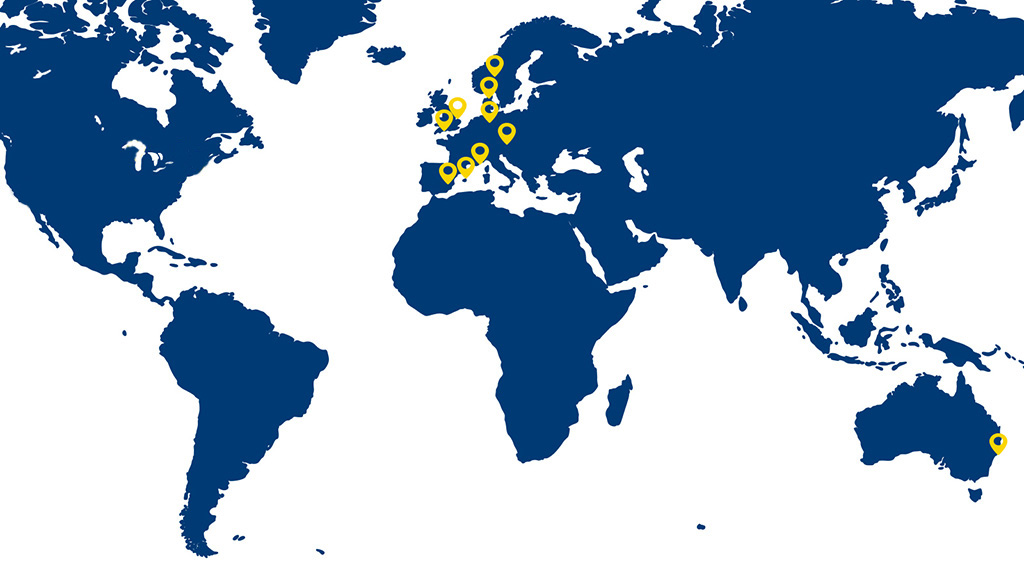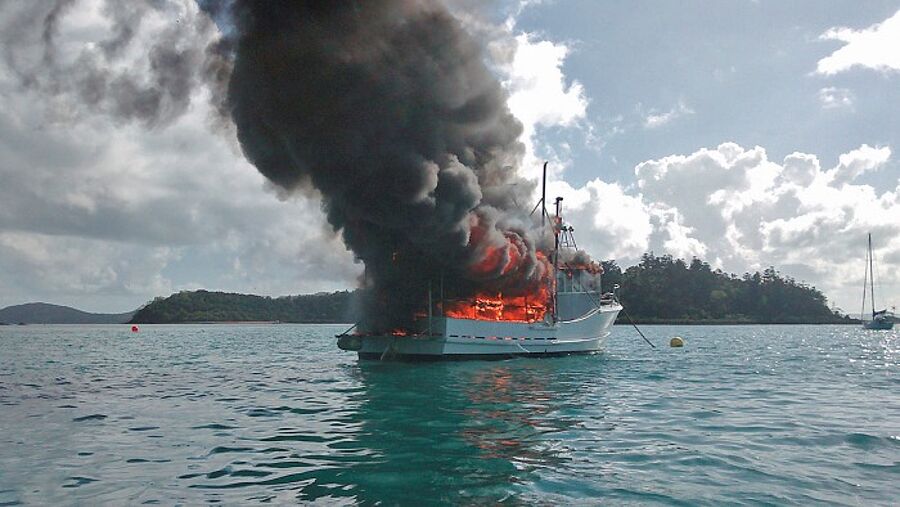
* Pantaenius UK Limited is authorised and regulated by the Financial Conduct Authority (Authorised No.308688)
As your skipper or charter insurances contracts have been concluded in Germany, you will first be redirected to the website of Pantaenius GmbH, Germany. Please follow the link-button to log in to your account.
Login Skipper & ChartererElectrical installations: The main cause of fire on board lies in electrical engineering. Old cables, defective insulation, corrosion or dirty contacts can lead to short circuits or increased contact resistance. As a general rule, the older the ship, the greater the probability of a fire originating in the electrical system.
In addition, particularly warm and humid areas, such as the Caribbean, are not particularly suitable for electrical systems. The contacts of the on-board electronics should be checked regularly and cleaned if necessary. There are special contact sprays that are especially suitable for use in maritime environments and protect against wet and moisture-related short circuits, failures and corrosion.

Pantry and galley: Motor and sailing ships often have a gimballed gas stove in their galley. The gas taps should always be kept closed when not in operation. This applies both to the closure on the gas cylinder and to the gas tap in the pantry and on the stove. This prevents gas from escaping even if one of the closures is defective.
The operation of gas systems is simply too dangerous to leave the installation to a layman. A gas explosion can be fatal. The installation and conversion of gas systems may only be carried out by an authorised specialist company. Otherwise, in the event of damage, the insurance cover may lapse.
Other advice: Have the gas system inspected by an expert every two years.
Machinery: Petrol-powered boats with an inboard engine, in particular, offer a certain risk potential. Since petrol is a volatile substance, flammable gases can quickly form. Therefore, the supply of fresh air via ventilation systems, so-called blowers, is very important. Otherwise, the fuel-air mixture could ignite when the engine is started. The functionality of the blower should be checked regularly.
Heating and fans: Heating systems can be the cause of a fire in many ways. Even oilskins and sailbags that are carelessly thrown in front of an outlet can cause melting damage. A kink in the ventilation hose often leads to hot air jams, which means a fire hazard, as ventilation hoses usually consist only of cardboard laminated with aluminium. In addition, the exhaust pipes pose increased risks because they become particularly hot. Surrounding cable ties can melt and lead to a short circuit. For this reason, installation should be carried out by a specialist. Caution is also called for with fan heaters, as the open glow wires can easily lead to fires.
Arson: Sad but true - arson is still a very common cause of fire. Not infrequently, those responsible are simply looking for destruction and vandalism, but often insurance fraud is also a motive. Pantaenius assumes that with ten to twelve per cent of all total losses by fire in any way, the owner is deliberately involved. In economically bad times the ratio rises to 15 to 20 per cent.